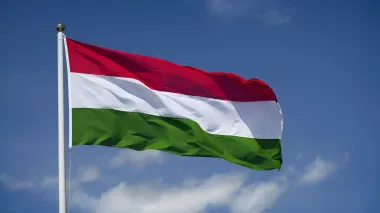EU plans to unlock €550 million for Hungary to secure sanctions against Russia – FT

The European Commission has decided to unlock around €550 million in EU funds for Hungary after months of negotiations, as Brussels is seeking to overcome Prime Minister Viktor Orbán’s veto on additional sanctions against Russia.
Source: Financial Times, as reported by European Pravda
Details: The EU can approve new sanctions only unanimously, though Hungary and Slovakia have threatened to veto the measures.
EU ambassadors on Friday discussed a range of restrictive measures presented by the commission.
More details:This week, the Commission said the new sanctions will target "cryptocurrencies, banks and the energy sector" while galvanising the EU’s plan to phase out Russian fossil fuel imports by 2027
Orbán, who faces parliamentary elections next year, has repeatedly refused to reduce Hungary’s dependence on cheap Russian energy imports and has delayed adopting sanctions against Moscow on multiple occasions.
Brussels froze around €22 billion of EU funds earmarked for Hungary in 2022 over concerns about judicial independence, asylum rights, discrimination against LGBT+ people and academic freedom.
The Commission eased the release of these funds to placate Orbán, releasing a €10 billion tranche in 2023 to secure Budapest’s approval for assistance to Ukraine.
Earlier this year, Hungary received another €157 million through a legal loophole enabling it to redirect frozen funds to other programmes.
The country is attempting to use the same loophole again. In May 2025, Hungary requested €605 million as part of a wider "midterm" review of how member states spend their share of the EU common budget.
After months of negotiations, Brussels is set to authorise Budapest’s access to most of the requested funds, around €550 million, according to two people familiar with the talks.
Background:
- On Friday 19 September, the European Commission announced its 19th sanctions package against Russia, proposing to ban imports of Russian liquefied natural gas (LNG) to EU markets by 1 January 2027.
- The European Commission is also proposing to significantly expand the list of Russian "shadow fleet" vessels subject to sanctions and to punish oil refineries, oil traders and petrochemical companies in third countries, particularly in China.
- The Commission is proposing additional measures to prevent sanctions circumvention, hitting cryptocurrency exchanges for the first time.
Support Ukrainska Pravda on Patreon !






